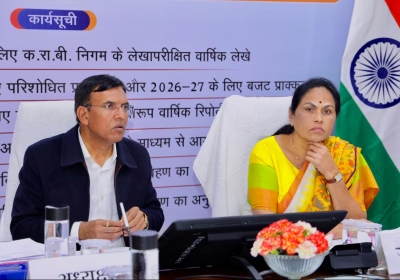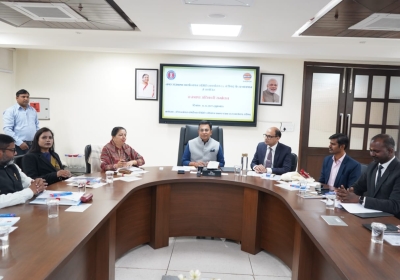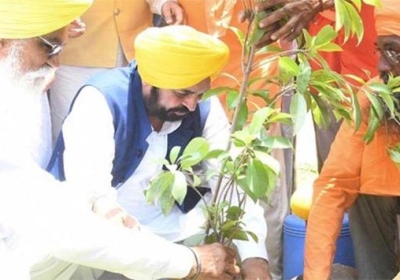
Prime Minister Modi looses his calm during his speech
The Prime Minister's Speech reveals how Rahul Gandhi got under his skin
Prime Minister Narendra Modi's statement in parliament yesterday will almost certainly not make him feel proud. Citizens demand a statesman's vision for the country when the Prime Minister speaks, as well as a basic level of respect for all parties and MPs.
The Prime Minister is the leader of the House, not the leader of the party he represents, in a parliamentary democracy. The opposition has the right to criticise him and, with him, his government's performance.Through the process of questioning by the Opposition, he and the administration are held accountable to parliament and the public.
The opposition must follow protocol as well, but the Prime Minister is held to a higher standard and cannot come across as arrogant or intolerant of criticism. Unfortunately, Prime Minister Modi's speech falls short of all expectations. He lost his calm, and the tone and tenor of his speech was "how dare you criticise me?" He also regarded the Congress, i.e. the opposition, as trash.
It's impossible to deny that Rahul Gandhi's address a few days prior was caustic. He referred to the Prime Minister as a "king" who opposes democracy. He also accused him of destabilising constitutional institutions such as the courts and the Election Commission. Mr. Modi has been chastised for ignoring variety and fraying the shaky relationship between the Centre and the states, which has the potential to be devastating.
Rahul Gandhi was adamant that India could not be controlled solely from the Centre, and that decision-making must take into account the concerns of the states. He reminded the Prime Minister that, according to the Constitution, India is a union of states, not a country, as the BJP claims. When he said that there are two kinds of India, one of and for the poor, and the other of and for the rich and wealthy, he touched a raw nerve with the Prime Minister; in this context, he mentioned Ambani and Adani, and said that since Modi took over, extreme capital centralisation has become a reality.
Although Rahul Gandhi should have been more courteous, the Prime Minister's response in the same coin is not what one would expect from a government official. Modi isn't known for his delicacy. His personality has been defined by his attitude of sparing no one and bulldozing everyone. Modi, unlike his senior, Atal Bihari Vajpayee, has not been educated in parliamentary traditions. Atal B Vajpayee built his political career by speaking in parliament and rubbing shoulders with the greats of Indian parliamentary democracy. He first entered parliament in 2014.while Atal B Vajpayee made a name for himself as a politician by speaking in parliament and rubbing elbows with India's parliamentary greats.
Vajpayee was a product of the Nehruvian age, when the Opposition's voice was not only heard but appreciated, and it was thought that the Opposition was essential to the efficient running of the legislative system. Vajpayee could be harsh in his criticisms of Nehru while also stealing his affection.
Modi is a throwback to a bygone era. He began his career as an RSS pracharak and dominated the state with an iron grip as Chief Minister; the opposition in the Assembly had no importance for him. In his opinion, he is infallible, and he believes that he should never be criticised, either inside or outside the party. He claims that he never does anything wrong. No one should try to tell him how to manage the country or how to conduct himself because he knows better what has to be done. Rahul Gandhi's statement was an attempt to smear Prime Minister Narendra Modi's public image. It was a direct hit on the heart of his persona.
The Prime Minister couldn't ignore it any longer. One would expect Rahul Gandhi to receive a proper response before he spoke, but I had not expected such a personal response. The PM tried to be solemn at first, but he lost his calm when Adhir Ranjan Chowdhury interrupted him. That's when he stated he hadn't taken any names yet, but that he would now, and he specifically mentioned the Congress.
His discourse had reached its nadir at this time. He was visibly enraged, as could be seen.Modi is a politician who is continually campaigning. He never misses an occasion to speak to the electorate. Elections are underway in five states, with the first phase of voting in Uttar Pradesh set to take place in a few days.
Knowing that his speech will be streamed live throughout the country, this was a wonderful opportunity to address voters. It's no surprise, then, that he spent more over 60 percent of his Lok Sabha speech criticising the Congress.
He told voters that the Congress was on its way out.And that it has done nothing to benefit the states or the country, which is why the Congress has been defeated in so many states. However, Modi's statement suggests that he believes the Congress is the only party that can truly confront him at the federal level.
Despite Mamata Banerjee's bold political claims of dethroning the Congress and establishing herself as the main anti-BJP front at the federal level, Modi is convinced that the Congress should be attacked ruthlessly, discredited relentlessly, and permanently expelled from both the federal and state levels.
However, Modi's statement suggests that he believes the Congress is the only party that can truly confront him at the federal level. Despite Mamata Banerjee's bold political claims of dethroning the Congress and establishing herself as the main anti-BJP front at the federal level, Modi is convinced that the Congress should be attacked ruthlessly, discredited relentlessly, and permanently expelled from both the federal and state levels.
It's no surprise that, like in the Lok Sabha, the Congress took up the majority of Modi's address in the Rajya Sabha. However, the zeal with which he blamed the Congress for everything that is wrong with the country - dynastic politics, the 1984 riots, the Emergency, and poverty - reminds us of the technique underlying his accusations.
Modi's obsession with the Congress is part of a larger political plan, not just a reflection of his emotional agony or hostility for the Congress or pathological loathing of the Nehru-Gandhi dynasty. In his book 'The New BJP,' Nalin Mehta provides some fascinating information on the BJP's relentless anti-Congress rhetoric.
He claims that the BJP mentions the Congress the most in its external communication, including as speeches, articles, and news releases. In fact, in 2019, the word "Congress" is at the top of the list.Words like "Modi," "BJP," and "progress" were all over the place. "This big political communication shift began in 2016 when we started seeing a dramatic upswing in Congress-related talk by the BJP.
Over the next three years, the BJP steadily ramped up the volume of anti-Congress talk, and by the 2019 general elections, this talk had overtaken its communications on all other issues," writes Nalin Mehta.
This rant by the PM and his party, in my opinion, will become more frequent in the future. Because he will feel more vulnerable as anti-incumbency towards the BJP grows at the Centre and in the states, and he will want voters and citizens of the country to remember the Congress's ills and have faith in his leadership. The Prime Minister is expected to establish a high standard for courteous and pleasant debate and dialogue. It is not an unreasonable request.
Also read : Update on PM Modi's speech: Modi's blistering attack on CONG





